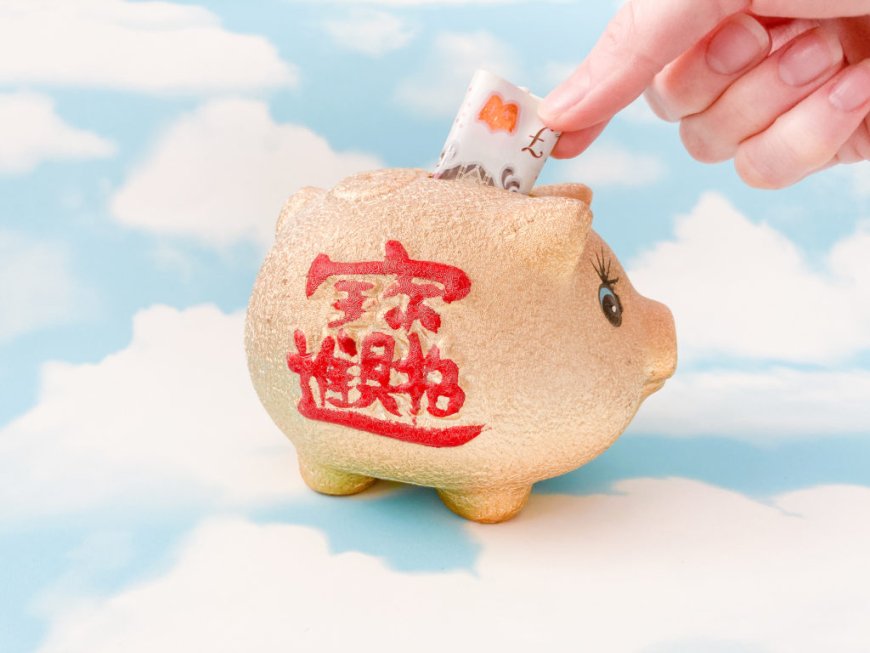The Chinese Secret to Saving Money
"Discover the Chinese secret to saving money! Learn time-tested strategies and cultural insights that can help you manage your finances more effectively and save more."

Saving money can often feel like a daunting task, but there are cultural practices and mindsets that can significantly help in this endeavor. One of the most striking examples comes from China, where the gross savings rate is an impressive 45.9%. In contrast, the savings rate in the United States hovers between 3.5% and 5%. What is the secret behind this disparity? In this blog, we will explore the cultural, social, and practical reasons that contribute to the impressive saving habits of the Chinese population.
Cultural Perspectives on Money
The first part of understanding why the Chinese are adept at saving money lies in their cultural perspective on finances. Money is often viewed as a symbol of success and stability. From a young age, children are taught that saving is honorable. This cultural narrative is reinforced through traditions, such as receiving "lucky money" in red envelopes during Chinese New Year and birthdays. This money is often encouraged to be saved rather than spent.
Furthermore, during celebrations, greetings often center around wealth rather than happiness. For instance, it's common to wish someone prosperity instead of simply saying "Happy New Year." This emphasis on financial success creates a mindset where saving is not just practical but also a valued trait in society.
The Impact of Demographics
Another significant factor influencing saving habits in China is demographics. The one-child policy, which was in effect until 2016, has shaped family structures and financial responsibilities. Families typically had one child, which meant they had fewer mouths to feed and could save more money. This policy has inadvertently led to a generation that places a high value on financial stability and success.
Additionally, the skewed gender ratio resulting from cultural preferences for male children has created a competitive environment among men. With more men than women, financial success becomes a key factor in attracting a partner. As a result, many men strive to save more money to establish themselves as desirable candidates in the marriage market.
Financial Security Concerns
The absence of robust retirement systems in China also contributes to the culture of saving. Many citizens are wary of relying solely on the pension system, fearing it may not provide sufficient support during retirement. As a result, individuals prioritize saving as a means to secure their future and cover potential healthcare costs and education expenses for their families.
The Zero-Based Budgeting Method
One practical strategy that embodies the Chinese approach to saving money is the zero-based budgeting method. This budgeting technique requires individuals to account for every dollar they earn, ensuring that their income minus expenses equals zero by the end of the month. This method encourages people to be mindful of their spending and prioritize savings alongside necessary expenses.
For example, if someone earns $4,000 a month, they would categorize their expenses into essential needs like rent and groceries, as well as savings for emergencies, retirement, or investments. By the end of the budgeting process, every dollar is accounted for, promoting financial awareness and discipline.
Four Key Factors in Chinese Saving Habits
Beyond cultural and demographic influences, there are four key factors that the Chinese prioritize to save effectively:
1. Avoiding Luxury Goods
Chinese consumers generally avoid indulging in luxury items that serve as status symbols. There is a strong cultural preference for humility, and many people opt for practical purchases over extravagant ones. This mindset helps them save money and live within their means.
2. Living Below Their Means
Another common practice is living off a small percentage of their income. For instance, even when earning a substantial amount, many individuals aim to live frugally. This principle often stems from childhood experiences of hardship, where saving money was a necessity for survival. As a result, many Chinese individuals develop a habit of saving as much as possible, often aiming to live on just a fraction of their earnings.
3. Needs vs. Wants
Chinese consumers are also adept at distinguishing between needs and wants. When it comes to necessary purchases, such as health-related items, they are willing to spend money. However, they remain frugal with discretionary spending. For example, opting for an ergonomic chair over a flimsy one is seen as a smart investment in health, while extravagant purchases for the sake of luxury are avoided.
4. Eating at Home
Lastly, the practice of eating at home is prevalent in Chinese culture. Dining out is reserved for special occasions, with most meals enjoyed at home. This not only fosters family bonding but also significantly reduces food expenses. By prioritizing home-cooked meals, families can save a considerable amount of money over time.
Conclusion
The Chinese approach to saving money is deeply rooted in cultural values, demographic factors, and practical financial strategies. By understanding these principles, individuals can adopt similar habits to improve their financial health. Emphasizing the importance of saving, living below one’s means, making informed spending decisions, and prioritizing home cooking can lead to better financial outcomes.
As the Chinese say during New Year's celebrations, "Gong Xi Fa Cai," which translates to "May you get rich." By incorporating these practices into your life, you too can work towards achieving financial prosperity.










































